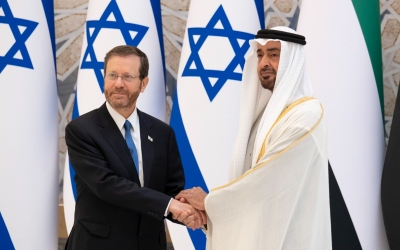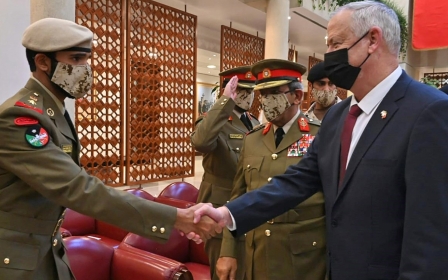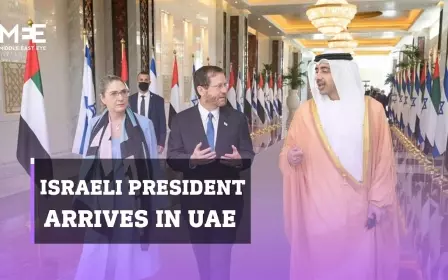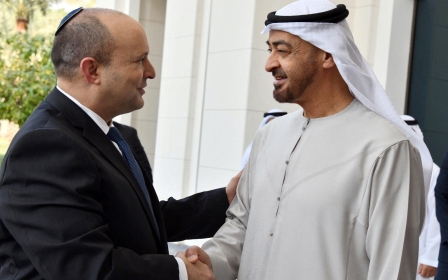Israel's prime minister lands in Bahrain in first visit
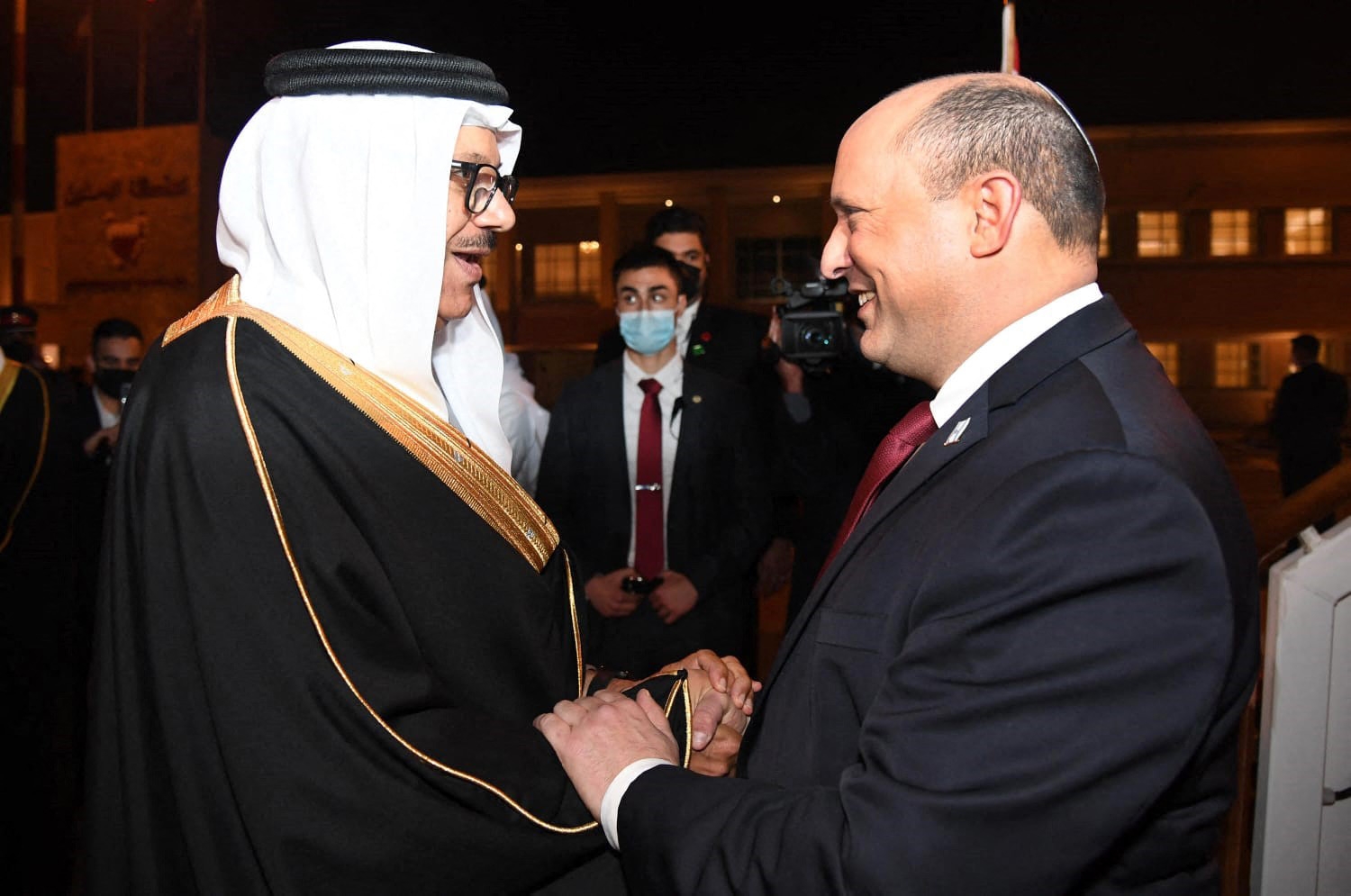
Israeli Prime Minister Naftali Bennett arrived in Bahrain on Monday for the first-ever official visit by an Israeli head of government to the small Gulf state.
Bennett is expected to meet Tuesday with the Bahraini king, Hamad bin Isa Al Khalifa, and his son, the kingdom’s prime minister and crown prince, Salman bin Hamad Al Khalifa.
Bennett’s surprise visit to the energy-rich island kingdom, which is also home to the US fifth fleet, is the latest in a whirlwind of diplomatic activity between Israel and Gulf states amid heightened tensions in the region.
"In these tumultuous times, it's important that from this region we send a message of goodwill, of cooperation of standing together against common challenges," Bennett said on the tarmac shortly before departing Israel.
His trip follows a visit to Bahrain by Israeli Defence Minister Benny Gantz earlier this month that saw the two countries sign a defence agreement.
That deal covered intelligence, procurement and joint training, with Gantz boasting that it further solidified the nascent diplomatic relationship.
Late last year Bennett made a landmark visit to the United Arab Emirates where he met with Emirati Crown Prince Mohammed bin Zayed Al Nahyan.
Bahrain and its close ally, the UAE, became only the third and fourth Arab states - following Egypt and Jordan - to establish ties with Israel when they signed the US-brokered Abraham Accord agreements. Sudan and Morocco soon followed suit.
The prime minister, who is also set to see other top officials and members of Bahrain's historic Jewish community, said he will hold "a series of meetings whose goal is to fill - with energy and content - the peace agreement between the two nations".
Mutual foe
Israel’s growing cooperation with Gulf partners comes as the Biden administration and world powers engage in talks with Iran to revive the 2015 Nuclear agreement.
Israel and Gulf states, like the UAE and Saudi Arabia, opposed the accord. They have warned against an agreement that provides Tehran with much-needed sanctions relief but doesn’t address its ballistic missile programme and support for regional proxies.
Those mutual concerns were underscored last month when the UAE announced it had downed a missile fired at it by Iran-aligned Houthi rebels in Yemen during a visit by Israel’s President Isaac Herzog.
Israel has offered to cooperate with its new Gulf partners on air defence and Israeli media has reported the country is considering a potential sale of its Iron Dome to the UAE.
Bahrain, with a population of 1.5 million, is a Shia majority country governed by a Sunni royal family. It has been slower to proceed with normalisation efforts than its more powerful and well-off neighbour, the UAE.
The Al Khalifa ruling family has faced criticism from much of the country’s Shia opposition for normalising relations with Israel. For its part, the Bahraini leadership has accused Iran of fomenting unrest among its population.
Despite this tension, cooperation has picked up. Trade between the two countries has gone from roughly zero before the Abraham Accords to $300,000 in the first half of 2021.
And as part of their recent defence agreements, Israel is also set to post a naval official in Bahrain, making it the first Arab country in history to officially host an Israeli military officer.
Middle East Eye propose une couverture et une analyse indépendantes et incomparables du Moyen-Orient, de l’Afrique du Nord et d’autres régions du monde. Pour en savoir plus sur la reprise de ce contenu et les frais qui s’appliquent, veuillez remplir ce formulaire [en anglais]. Pour en savoir plus sur MEE, cliquez ici [en anglais].


